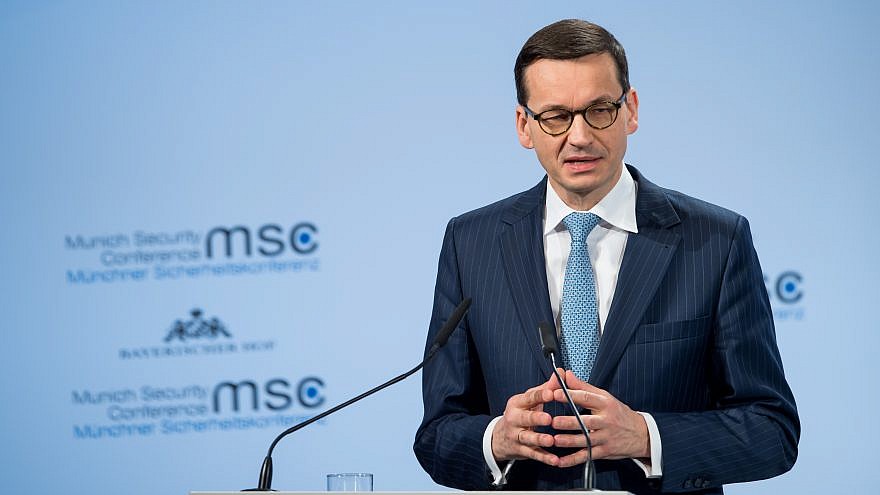Polish Prime Minister Mateusz Morawiecki recently asserted that his government would never agree to pay restitution for property stolen from Jews during the Holocaust. This is in stark contrast to other European Union states, which have passed comprehensive legislation regarding private property confiscated by the Nazis or successive regimes.
According to Gideon Taylor, Chair of Operations of the World Jewish Restitution Organization, Morawiecki’s statement is “deeply insensitive to Holocaust survivors and their families. … We call on Poland to meet its commitment to non-Jewish and Jewish property owners who have waited many years for Poland to provide them with a measure of justice.”
Unfortunately, reimbursement for Jewish property stolen by the Nazis and subsequent regimes has done little to restore the dignity of the Jews of Europe. The European Union’s Fundamental Rights Agency (FRA) published a report last year that found anti-Semitism to be intensifying. Jews are more and more worried about being harassed, according to this major survey of 12 European Union countries.
The FRA reports that in these countries, which except for Poland have laws on the books for the compensation of property stolen from Jews during World War II, incidents of anti-Semitic abuse are so rampant that most victims don’t even bother to report them. The survey found that 47 percent of European Jews are worried about anti-Semitic insults or harassment, and 40 percent fear being physically attacked.
According to Taylor, restitution is meant to “provide the means for survivors to live with the dignity that they deserve.” Yet dignity is in short supply for the approximately 200,000 people living in Israel whose lives were uprooted by the Nazis. A quarter of these individuals live in poverty.
This sad state of affairs is in spite of the fact that total German reparations paid to Israel since the Reparations Agreement was executed by Israeli Foreign Minister Moshe Sharett and German Chancellor Konrad Adenauer in 1952 exceed $78 billion.
These funds aren’t sent directly to individual Holocaust survivors. Reparations are channeled through the Israeli government and Jewish Claims Conference, with disastrous results. In 2016, the Israeli government published a report finding that 20,000 survivors in Israel had never received the assistance owed to them.
The report documented how bureaucracy and the multiple agencies dedicated to Holocaust restitution created a situation in Israel where survivors go hungry and suffer from cold and neglect. Organizational overhead is estimated to be in the hundreds of millions of dollars—money that was supposed to go to Holocaust survivors.
The Center for Organizations of Holocaust Survivors in Israel, made up of 55 organizations representing communities that suffered from Nazi persecution during World War II, states that its purpose is to “fight for the survivors’ rights in Israel and abroad, in order to allow them to live in dignity and ensure their welfare.” Why have they failed?
Because the Holocaust restitution model is based on an application of retributive justice, a theory that considers punishment to be a morally acceptable response to crime. Meanwhile, restorative justice focuses on the needs of victims, instead of the need to satisfy the rules of law. While retributive justice is backwards looking, restorative justice looks forward to what’s best for society as a whole.
The primary need of Holocaust survivors and their descendants is to live in dignity. A one-time official apology and financial arrangement hasn’t produced dignified lives. Such an approach to obtaining justice brings to mind the debunked Catholic practice of selling indulgences as a way to reduce the punishment for sin. In 1567, the church outlawed the sale of indulgences.
As Jackie Robinson said: “The most luxurious possession, the richest treasure anybody has, is his personal dignity.” Ultimately, it’s dignity that protects an individual from unjust treatment.

























